Find your postgraduate
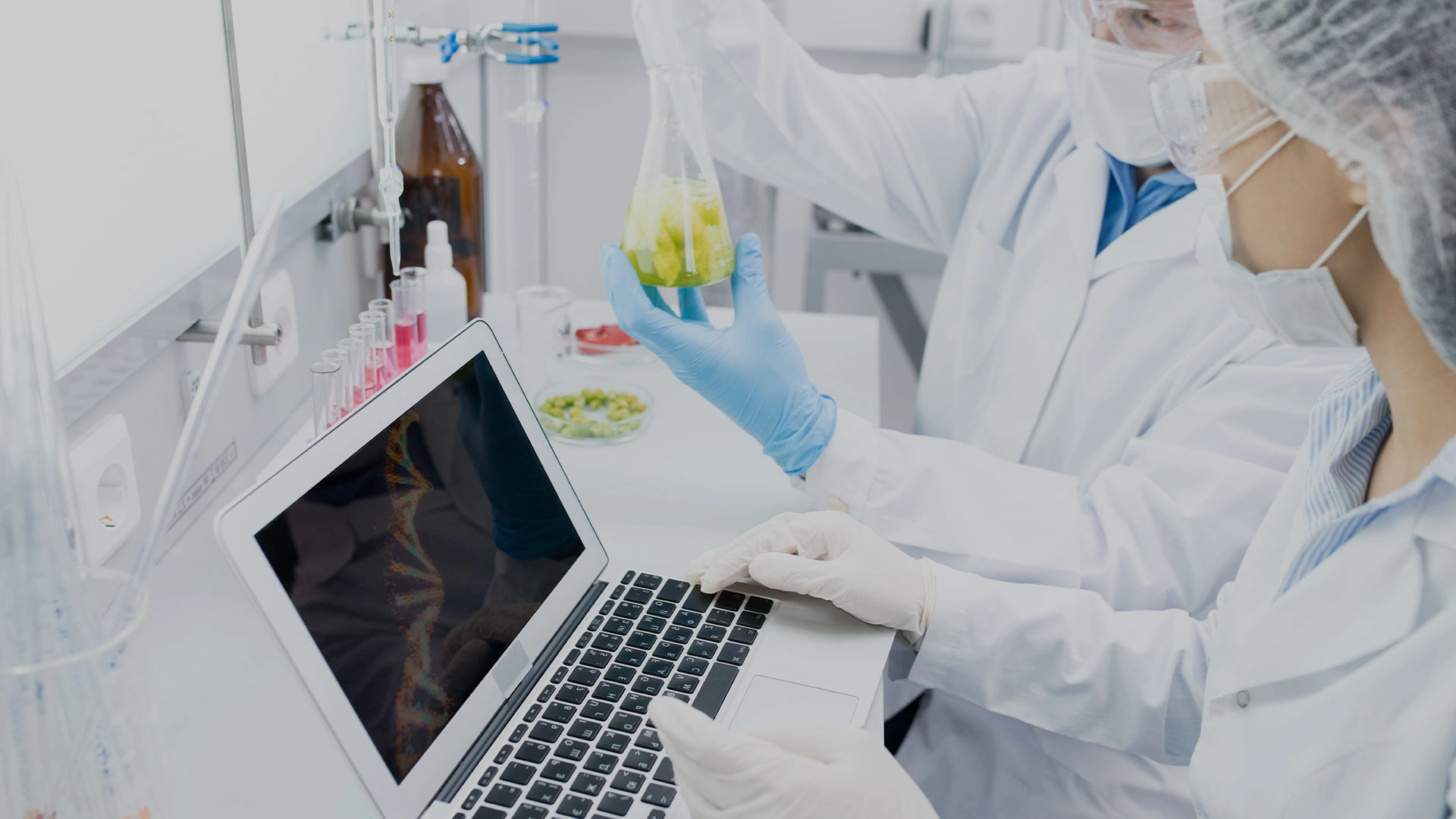


Optional internship
1,500 hours
Optional internship
Online
Dual degree
60 ECTS
Employability
plan
6790€ +
560€ Enrolment Fee
This Postgraduate in Biostatistics and Bioinformatics prepares you to apply and develop new computational techniques in biomedical research, working both in hospital environments and for companies across the biotech sector. Our online Postgraduate in Biostatistics and Bioinformatics will teach you how to use computer tools to store, organise, analyse and interpret vast amounts of data to extract knowledge that can be applied to solving biological and biomedical problems. This postgraduate will fully equip you with the skills you need to kickstart your career in this rapidly evolving sector.

You will have access to many hours of audio visual materials, which are essential teaching materials. Thus, you can study wherever and whenever you want.
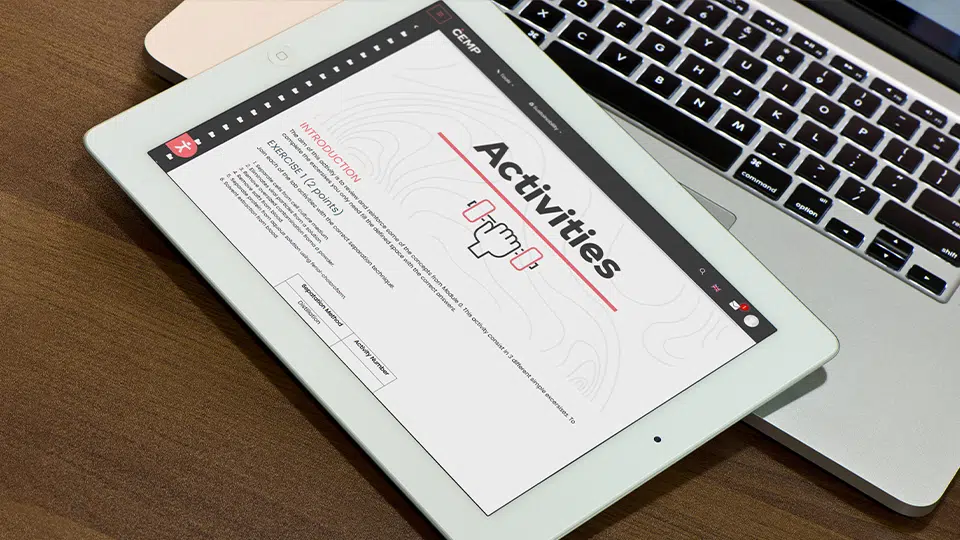
Approximately twice a week you will carry out practical activities that will be reviewed and evaluated by your specialized teachers.

Class summaries, articles to stay up to date... You will have everything you need to keep on learning.

You will learn from well-known experts in the medical sector thanks to our master classes, which you can watch as many times as you want.
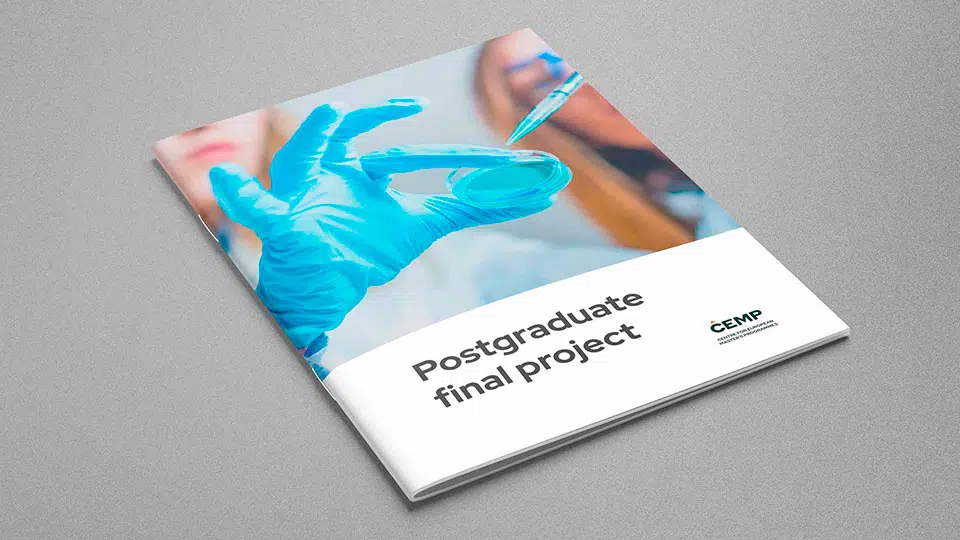
At the end of the course you will conduct a research project on a topic of your interest. One of our teachers will supervise your project..
Your teachers will open the doors to training in Postgraduate Certificate in Bioinformatics and Biostatistics with a focus on employability through specialisation:


MSC IN NEUROSCIENCE AND BSC IN BIOLOGY
David Alarcón has 6 years of experience as a PhD researcher in Biotechnology. His work, which has been published in high-impact international journals, has focused on the biochemistry and cell biology of pain perception. To share his passion for biology, David is currently refocusing his career on education.


PHD IN BIOMEDICINE
He holds a PhD in Biomedicine, a BSc in Biology and an MSc in Biomedical Research. He is currently working as a postdoctoral researcher at King’s College London. He has extensive research experience in molecular biology with a focus on cancer and diabetes. He is also involved in teaching and public engagement.


PHD IN MOLECULAR BIOSCIENCES
She holds a PhD in Molecular Biosciences. She also has a BSc in Biotechnology and an MSc in Molecular Biomedicine. Sara has focused her professional career on teaching as well as researching in bioinformatics and molecular biology.
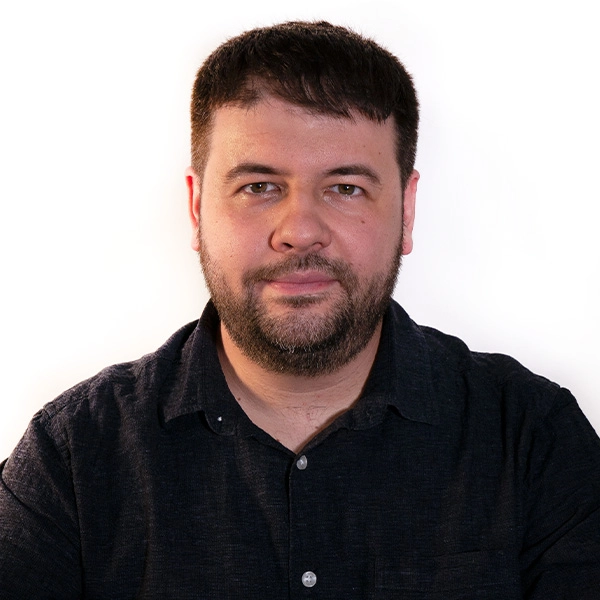

BSC IN COMPUTER SCIENCE
He holds a BSc in Computer Engineering and Information Technology and an HNC in Computer Systems Administration and Management. Cristian is a specialist in software development, SQL/noSQL databases and programming in multiple languages, frameworks and platforms. In addition, he has extensive experience as a teacher.


PHD IN BIOCHEMISTRY
She holds a BSc in Biology and a PhD in Biochemistry. She has extensive experience as a researcher and project manager at the University of Navarra, the University of A Coruña and the University of Santiago de Compostela. Beatriz has published a wide range of articles and has presented papers at national and international conferences. In 2017, she received the jury award for Best Master's Professor from the Spanish Association of Business Schools.
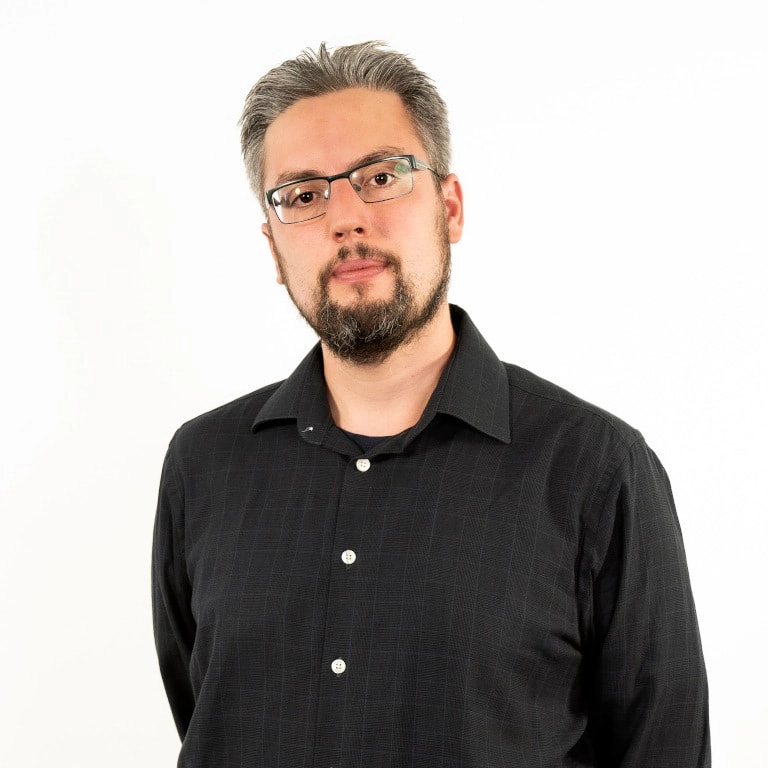

PHD IN MOLECULAR BIOLOGY
He holds a PhD in Molecular Biology and a BSc in Biology. He has experience as a research scientist and has been involved in numerous biomedical projects in both academia and the private sector. He is currently a Senior Laboratory Investigator at the Francis Crick Institute.
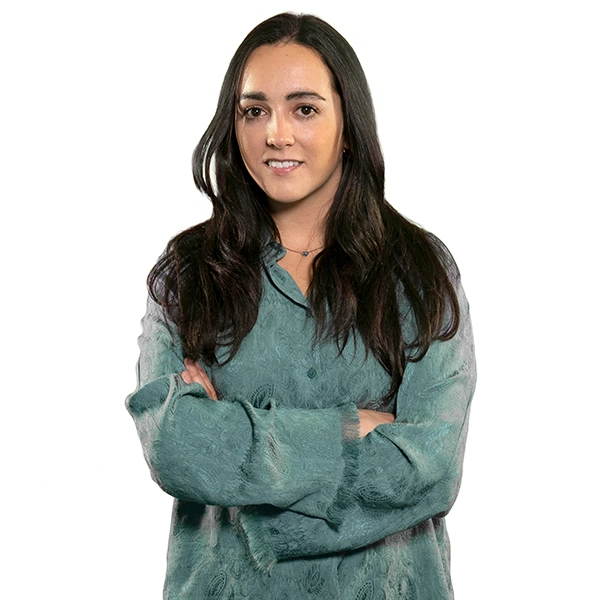

BIOTECHNOLOGIST
She holds a BSc in Biotechnology and an MSc in Pharmacology, specialising in Molecular Biology and Medical Genetics. Rosalia has a wealth of experience in the biotechnology industry. She is currently working at Health in Code, a company focusing on the genetic diagnosis of cardiovascular diseases and the interpretation of genetic results.


PHD IN BIOCATALYSIS
She holds a PhD in Biocatalysis and a BSc in Agricultural Engineering. Marta is passionate about biostatistics and AI. In addition, Marta holds two MSc degrees in Biomedical Informatics and Big Data and has worked in clinical and biomedical data analytics. In addition, she has a wide range of experience both as a researcher and a teacher.
From the first to the last stage of your training, we will always be by your side to help you make the most of every step.
As soon as you enrol, you will have access to the virtual platform. We will also start your employability plan. Let's get going!
Videos, PDF summaries and live classes from your teachers.
You will regularly test your knowledge to move steadily towards your goals.
You will carry out a bibliographic research project on a topic of your interest.
Let’s get to work! From 60 to 300 hours of optional internships available in a wide range of companies.
You have reached your destination! You now have your CEMP postgraduate certificate and university accreditation from UCAM*. It's time to face new challenges... and new adventures!
*see accreditation conditions.
I want my CEMP certificate! I want my CEMP degree!As you progress along the Bioinformatics training program, you will discover different modules which will help you, step by step, to reach your final goal.
1. The cell: structure
2. Cell components and carbohydrates
3. Lipids
4. Peptides
5. DNA
6. ARN
7. Chromosomes
8. Genes and genomes
9. Study of the chromosomes
10. Mutations and polymorphisms
11. Cell division
12. Central dogma of molecular biology
13. DNA replication and repair
14. Transcription
15. Translation
16. Control of gene expression in prokaryotes
17. Control of gene expression in eukaryotes I
18. Control of gene expression in eukaryotes II
19. Epigenetics
20. PCR
21. Recombinant DNA technology
22. Sequencing
23. Nucleic acid hybridisation: arrays
24.Cell mobility and transport
25. Membrane proteins
26. Mass spectrometry
27. X-ray crystallography
28. Protein structure prediction
29.Basic immunology
30.Viruses: structure and function
1. Fundamentals of descriptive analysis of one-dimensional data
2. Introduction to R and RSTUDIO
3. Fundamentals of Probability Calculus I
4. Fundamentals of Probability Calculus II
5. Discrete random variables
6. Continuous random variables
7. Discrete notable distributions
8. Practice of R. Main objects of R
9. Continuous notable distributions
10. Basic elements of a random vector
11. R practice. Representation and simulation of random variables with R
12. Media vector and covariance matrix
13. Estimation of the parameters of a population
14. Confidence range for a proportion
15. Confidence range in normal distributions
16. Hypothesis contrast for a proportion
17. Practice of R. Bias, variance and confidence range for an estimator
18. Hypothesis contrast for a normal population
19. Comparison of populations
20. Practical R. Hypothesis contrast in R
21. The maximum plausibility method
22. The method of linear regression simple I
23. The method of linear regression simple II
29.Basic immunology
30.Viruses: structure and functio
24. The model of multiple linear regression
25. Practical R. Linear regression adjustments
26. The model of analysis of variance
27. The method of analysis of covariance
28. Logistic regression
29. Neural networks for regression
30. Variable selection and extraction techniques for regression
31. Variable selection and extraction methods
32. Evaluation of regression models
33. Comparison of regression models
1. Introduction
2. Basic data types, operators and input/output
3. Types of advanced data
4. Flow control
5. Function
6. Errors and objects Oriented Programming
7. Data manipulation
1. Introduction to omics: application
2. Databases useful for the analysis and interpretation of omics data
3. What is massive sequencing? From DNA to NGS data (Big Data)
4. General bioinformatics analysis of massive sequencing data
5. Genomic variants
6. Bioconductor: repository of bioinformatics tools
7. Variant detection through the use of bioinformatics methods
8. Integrative Genome Viewer
9. DNA sequencing
10. Transcriptomics I: RNA-seq
11. Transcriptomics II: Microarrays
12. Characterisation and functional enrichment
13. Other omics









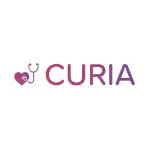
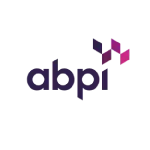










Why enrol in our Postgraduate in Bioinformatics and Biostatistics online training programme? Because in addition to having prestigious professors and a curriculum aimed at preventing dropouts, we guide our students towards achieving their professional goals.
Learn more about the employability plan you'll benefit from the moment you sign up.
More and more clinical laboratories demand qualified professionals. With this Postgraduate in Medical Laboratory Science, you have the opportunity to get key training to enter the job market and apply for important positions in the healthcare and pharmaceutical sectors.
Some job opportunities available to Medical Laboratory experts can be found in hospital laboratories, research centre laboratories, genetic engineering technology centres, pharmaceutical laboratories, assisted reproduction centres, and forensic laboratories, to name a few.
Our Postgraduate in Medical Laboratory Science has a total duration of 1,500 hours. This is equivalent to 60 ECTS credits, the workload typically associated with an academic year.
Bioinformatics is the application of computational and statistical techniques to study biological data, including DNA, RNA and protein sequences. It involves the development of algorithms and software tools to analyse and interpret large data sets in order to understand biological systems and processes. Bioinformatics has applications in several fields, including genomics, proteomics, drug discovery and personalised medicine.
Biostatistics is the application of statistical methods to study biological data and improve public health. It has many applications, including the design of clinical trials, the analysis of health care data, the identification of risk factors for disease, and the evaluation of public health programmes. Biostatistics also plays a crucial role in developing and testing new medical treatments, and in the analysis and interpretation of epidemiological data to inform public health policy.
At CEMP, we offer online training programmes that are fully adapted to the needs of each person, with tailored payment instalments available worldwide, to make sure each student is able to complete all stages of their postgraduate course successfully. To find out more about fees and payment plans, contact us through the online form and one of our friendly and experienced team will be in touch.